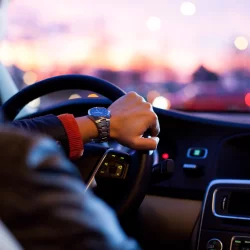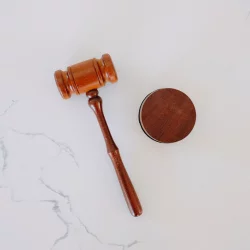How to Challenge Breath Test Results in a DUI Case
If you have been arrested for DUI (Driving Under the Influence) you may be facing penalties such as fines, the loss of your driver’s license, and even a potential jail sentence. One of the most common pieces of evidence used in DUI cases is the results of a breath test, which measures the amount of alcohol in a person's system. However, these tests are not always accurate, and there are several ways to challenge their validity in court. If you are facing a DUI charge, understanding how an experienced DUI defense lawyer can help you challenge breath test results can be crucial in building a strong defense.
What Is a DUI Breath Test?
A DUI breath test, also known as a breathalyzer test, is a device that measures the concentration of alcohol in a person's breath to estimate their blood alcohol content (BAC). The legal BAC limit in Arizona and most other states is 0.08 percent. If the breath test indicates that your BAC is at or above this limit, you may be charged with DUI.
Implied consent laws require you to submit to a BAC test when requested by a police officer after being arrested for DUI. Notably, these laws do not apply to a portable breath test that an officer may ask you to take during a traffic stop. Refusal to take a roadside breathalyzer test may result in an arrest, but it will not result in any other penalties. However, after you are arrested and taken to a police station, you will most likely be asked to take a breathalyzer test. If you refuse to take a BAC test at this point, your driver’s license will be automatically suspended.
While breath tests are commonly used to gather evidence in DUI cases, their accuracy can be challenged in court. If your attorney can demonstrate that these test results were incorrect or that there were issues that affected their accuracy, the evidence against you may fall apart, and you may be able to avoid a conviction.
Potential Ways to Challenge Breath Test Results
1. Question the Legitimacy of the Traffic Stop
In order to conduct a traffic stop, a law enforcement officer must have a reasonable suspicion that a crime or traffic violation has occurred. This could include signs of erratic driving, such as swerving, speeding, or failing to stop at a red light. If the officer did not have a valid reason for stopping you, the stop may be considered unlawful. As a result, any evidence collected during the stop or the subsequent arrest, including breath test results, could be deemed inadmissible in court. A DUI attorney can review the details of the traffic stop to determine if your constitutional rights were violated.
2. Review the Accuracy of the Breath Test Device
Breathalyzer devices are sensitive instruments that require regular maintenance, calibration, and testing to ensure accurate readings. Failure to maintain these devices properly can lead to inaccurate results. A review of the calibration records of the device may reveal that it was not properly maintained or tested before it was used on you. If there are reasons to doubt the accuracy of test results due to calibration issues or other factors, an attorney can challenge evidence that you were intoxicated.
3. Examine the Officer’s Training and Conduct
Law enforcement officers must be properly trained, and they must follow specific protocols when conducting a breath test. An example of these protocols is the observation period. The officer must observe you for about 15 to 20 minutes before administering the test to ensure that you have not ingested anything or experienced any issues that could affect the results. For example, smoking or vomiting during the observation period could impact the accuracy of a breathalyzer test. If the officer failed to observe you properly or did not follow standard procedures, your attorney could argue that the breath test results are unreliable.
4. Consider Medical Conditions or Other Factors
Certain medical issues or external factors can increase the likelihood of false-positive results on a breathalyzer test. For example, people with gastroesophageal reflux disease (GERD) or acid reflux can have alcohol from their stomachs rise into their mouths, which can artificially inflate BAC readings. Diabetics who experience ketoacidosis may produce acetone, a chemical that some breathalyzer devices can mistake for alcohol. The use of mouthwash, breath fresheners, or certain medications containing alcohol can also affect test results. Your lawyer can review your case to determine whether any of these issues may allow breathalyzer test results to be challenged.
5. Analyze the Timeline of the Test
The timing of a breath test is crucial, as BAC levels fluctuate over time. If there was a significant delay between when you were pulled over and when the breath test was administered, it is possible that your BAC was lower while you were driving and only increased afterward. This is known as the "rising blood alcohol" defense. By analyzing when you last consumed alcohol and when the breath test was conducted, your attorney may be able to argue that the breath test result does not accurately reflect your BAC at the time you were driving.
Contact a Tucson DUI Defense Attorney
Challenging breath test results in a DUI case involves a thorough understanding of the legal and technical issues that must be considered. A skilled Tucson, AZ DUI defense lawyer can evaluate the circumstances of your arrest, analyze the evidence against you, and develop a strategy to effectively contest breath test results or other factors that may play a role in your case. By presenting a strong, evidence-based defense, your attorney can work to have the charges reduced or dismissed.
More to Read:
Previous Posts:



